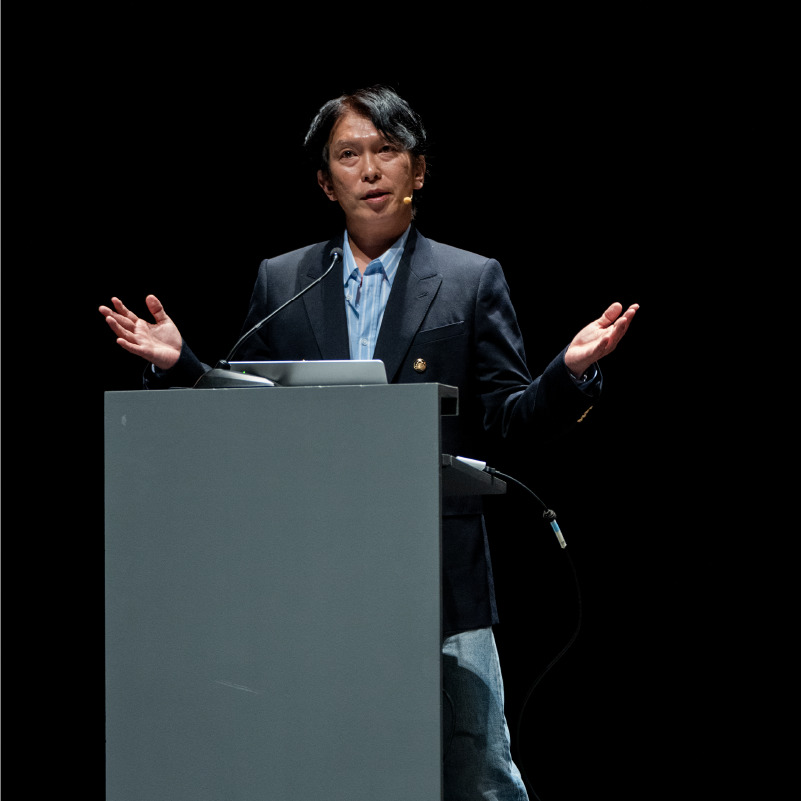Five debates and an ‘un-pavilion’ at the World Congress of Architects








The OBEL AWARD participated at the UIA World Congress of Architects with an SDG pavilion – a giant green washing machine as an art installation in the harbour of Copenhagen – and five debates about different urgent challenges facing the built environment.
More than 6,000 professionals from 135 countries participated in the largest global event for sustainable architecture: the UIA World Congress of Architects. The four-day conference took place from 2 to 6 July 2023 at the Bella Center in Copenhagen, Denmark. It was a unique opportunity for the OBEL AWARD to share knowledge and discuss pressing issues.
The OBEL AWARD offered numerous talks and side events with OBEL AWARD winners and jury members as well as an SDG pavilion – a green washing machine on a disused barge in the harbour of Copenhagen. This “un-pavilion,” visible from great distances in the city, communicates an easily understandable message about the counterproductive nature of greenwashing. As all OBEL AWARD initiatives, it seeks to foster debate about pressing issues facing people and the planet.
Four urgent challenges
Each year, the OBEL AWARD jury chooses a focus to address today’s major challenges facing the built environment. The OBEL AWARD UIA talks represented these topics of the previous four years: Well-being, Mending, Emissions, and Cities. The four award-winning solutions provided the point of departure for debate.
In one discussion, the panelists discussed the meaning of mending and the power of architecture and design to heal, in part, our built and natural environments. The discussion brought out divergent points of view about, among other things, the goal of environmental justice through “actionable idealism” proposed by Jeanne Gang; making the connection between the urban and the rural both visible and supportive (Tiantian Xu); and questioning the meaning of words that architects use when often undertaking “business as usual” (Reinier de Graaf).
OBEL AWARD winner Anna Heringer received a spontaneous applause when she issued an apology to people in the Global South for the legacy of architecture from wealthy countries of the Global North and the false promises that have been made.
“Architecture [was] supposed to bring us a safe life, comfortable life, a healthy, easy, happy life, when in fact we contributed to social injustice by serving mostly the rich and by contributing largely to climate change,” she said, according to an article by Dezeen recapping her opinion.
The panel discussion on cities, also moderated by senior advisor Martha Thorne, opened with the four participants outlining major challenges facing our urban areas of today and tomorrow. These ranged from concerns about inequality, policies, infrastructure, city forms, accessibility and cities, and climate change. It was an especially rich conversation on the main stage, as the panelists come from different professional backgrounds and currently develop different roles related to cities. One of the panelists was OBEL AWARD winner Carlos Moreno who is behind ‘the 15-minute city’ concept.
In another talk, jury chair Martha Schwartz and OBEL AWARD winner Junya Ishigami delved deep into the role of architecture for enhancing well-being of individuals and the natural environment through processes of design.
At the Danish Architecture Center, Sam Draper and Barney Shanks from Seratech – a solution for carbon-neutral concrete and the fourth ever OBEL AWARD winner – engaged with other panelists in a vivid discussion on emissions and new materials and construction methods. The discussion was moderated by ETH Professor Chris Luebkemann.
A fifth talk, ‘Ungrounding’, took place at the Louisiana Museum of Modern Art, at which jury member Aric Chan led a conversation with Cave Architects who currently have an exhibition on view.
Photo credit: UIA World Congress of Architects 2023
Link to Dezeen Article
Link to the unPavilion
Link to All Talks
